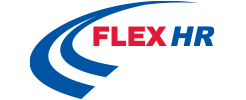The Top 5 Most Demanding HR Functions

Unfortunately, no. The capacity of today’s Human Resources department is anything but simple. Over the last fifty years, the body of knowledge that is Human Resources has exploded – technical content has proliferated and best practices have evolved as the workplace and employees have progressed. Today’s workforce is often global in scope and contains contingent and international workers, but even if your company is a local small business, HR is very different today than when America first landed on the moon.





 Employee retention and job satisfaction begins with the organization’s
Employee retention and job satisfaction begins with the organization’s 



